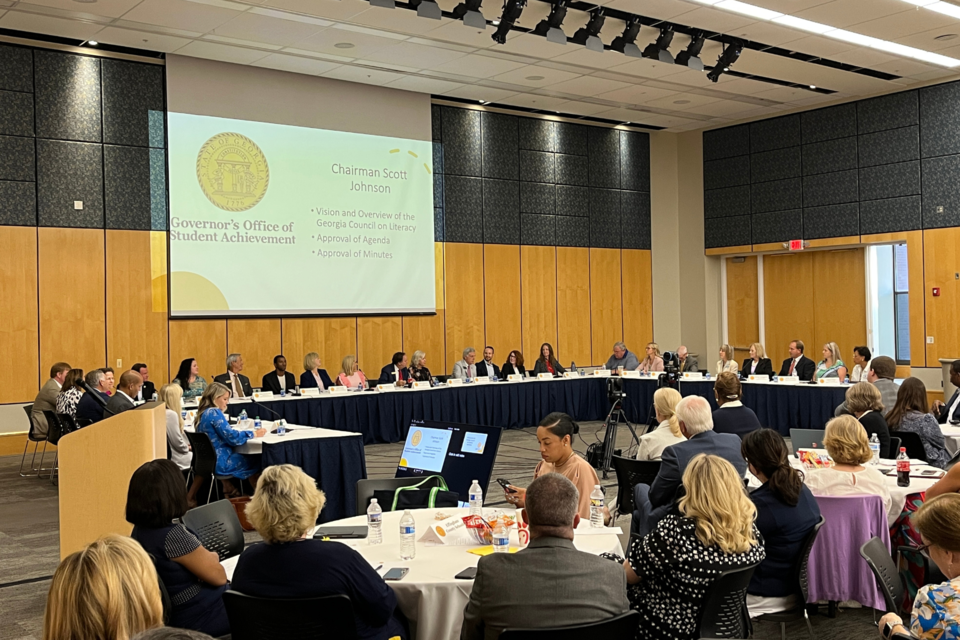[Editor's Note: This is a longer read than our usual articles, but take a few extra minutes to hear about the state of literacy in Georgia and what this group is doing to help. The children of Georgia are counting on you! Special thanks to Senator Billy Hickman for his work on this important issue.]
The legislature-appointed Georgia Council on Literacy held its first in-person meeting on Monday, August 7, at Georgia Southern University. The agenda featured updates from a variety of stakeholders, a rundown on the Council's plans to address literacy in the state, and an opportunity for local literacy advocates to participate in roundtable discussions.
The Georgia Council on Literacy (GCL) is made up of 30 appointees who will conduct comprehensive reviews of birth to postsecondary literary programs and ensure the state is supporting the improvement of literacy outcomes for Georgia students. Additional duties of the Council include researching and providing recommendations on how to improve literacy rates for students with dyslexia and other learning disabilities as well as students from low-income households.
Senator Billy Hickman is a local literacy champion and serves as Chairman of the Senate Committee on Higher Education. He sponsored Senate Bill 211 earlier this year, which created the Council. He now sits on the Council and says this is something he's truly passionate about, as our literacy numbers in Georgia are troubling.
"People always want to go read to the kids," Sen. Hickman said. "But I always encourage them to go and let the kids read to you. Then you'll see what we're dealing with."
According to experts at the meeting, only 2 in 5 Georgia third graders can read proficiently by the end of that year. What's more concerning is that reading mechanics are no longer taught beyond third grade. So if a child is not a proficient reader by the time they reach fourth grade, they are unlikely to ever become one.
The Georgia Council on Literacy has a strong plan in place to help combat these staggering statistics. Read on to learn more about the specifics of the plan.
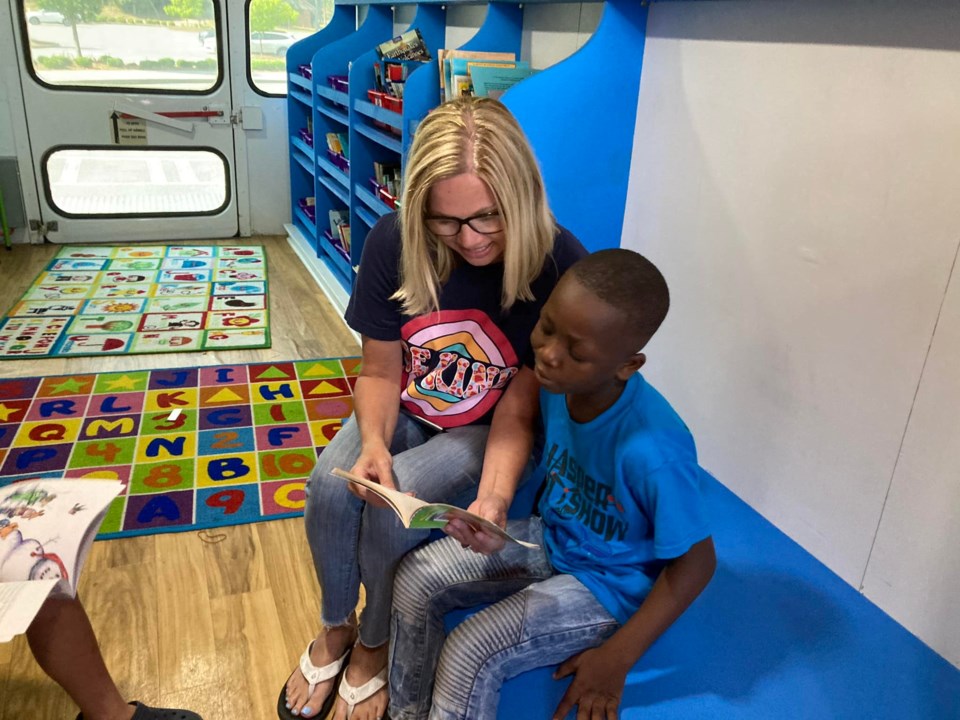
Tackling the 'most solvable problem' in Georgia
Attendees of the public meeting were welcomed by Georgia Southern President Kyle Marrero, Georgia House Speaker Jon Burns, and Dayle Burns, longtime educator, member of the Georgia Southern College of Education Board, and wife of the Speaker. They all spoke on the dire need for a community-based approach to improving literacy in the state of Georgia.
In her presentation, Mrs. Burns outlined the efforts being made at Georgia Southern to equip new and existing teachers will the skills to teach our children to read. This includes training for paraprofessionals to become certified teachers, literacy training for first and second grade teachers in Savannah, creating innovative ways for teachers to understand and identify dyslexia, increasing field experience, and more.
She stands personally committed to better preparing teachers who graduate from Georgia Southern University with evidence-based techniques, as they are critical to literacy success going forward.
Following Mrs. Burns's comments, GCL Chairman Scott Johnson noted that the Council has full bipartisan support, which can be rare in Georgia. And based on the crowd present for the meeting, he was encouraged about all that is to come. Johnson noted that with the booming economic growth in our state, we will need to produce a workforce to match it.
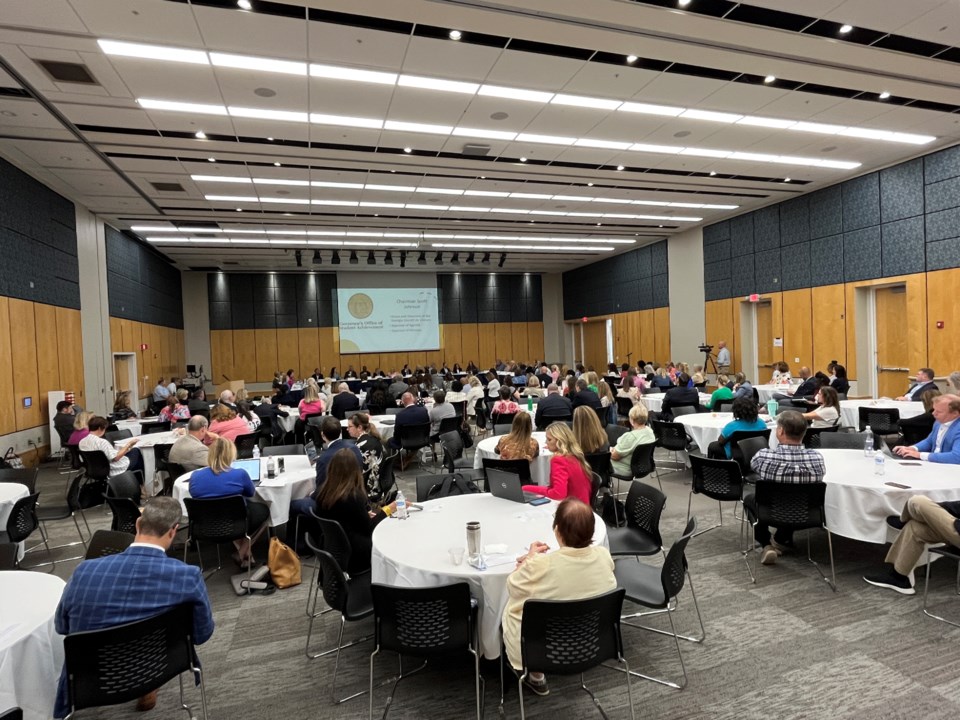
"The current literacy rates are not where they need to be to support the workforce and its growing needs for our economy," he said. "We’re the number one place to do business. Isn’t that great? But ... if we don't have a literate workforce, those jobs are going to go somewhere else. That’s not going to be Georgia’s story."
Johnson also shared a personal story about his grandson and the struggles he faced with dyslexia. His grandson got the resources and support he needed to begin thriving in the school environment, but that's not the case for every child in Georgia.
"We’re going to take care of every young child, every young boy and girl like [my grandson] Luke, because that's our responsibility," he said. "That’s why we are here today, and we won't falter and we won't fail to get this done. We're going to be transparent, and we’re going to be inclusive, and our work is going to be done in the light of day. We're going to prioritize people over programs. Teachers are my heroes, and this is about the kids."
"There is a challenge ahead to bring Georgia up to speed on literacy, but the Council is dedicated and passionate," Georgia Literacy Coach Miranda Williams added. "This is a time of opportunity in our state, and bipartisan support is key. The Council is looking at this as a multidisciplinary approach and a multigenerational approach.”
"We're about to tackle Georgia’s most solvable problem," Johnson said.
Words from the Council and the experts
Following opening remarks, members of the Council were able to introduce themselves to all in attendance. The panel includes administrators, legislators, educators, librarians, and child and literacy advocates, many of whom are parents who have children with dyslexia or have the condition themselves.
In a sentiment echoed by others in attendance, Council member Bubba Longgrear, Superintendent of Candler County Schools, said in his introduction, "I don't believe there's a greater gift that we can give our young people than the ability to read."
Dr. Ryan Lee-Jones from the Rollins Center at the Atlanta Speech School then spoke on the Science of Reading and the importance of using evidence-based strategies for teaching literacy skills. Children, she said, need to actually be able to decode words so that they can comprehend, which is the end goal of reading.
"Without literacy, life outcomes are bleak. Too many of our nation's families have been locked out of literacy," she said. "So how can we support our teachers as they support our children and families? [We must provide] evidence-based training in their pre-service programs. Undergrad students should learn to become critical consumers of research to make the best decisions for the children in front of them."
Lee-Jones noted the importance of not only focusing on literacy and brain development from an early age but also thinking about and strategizing for older learners, including adults.
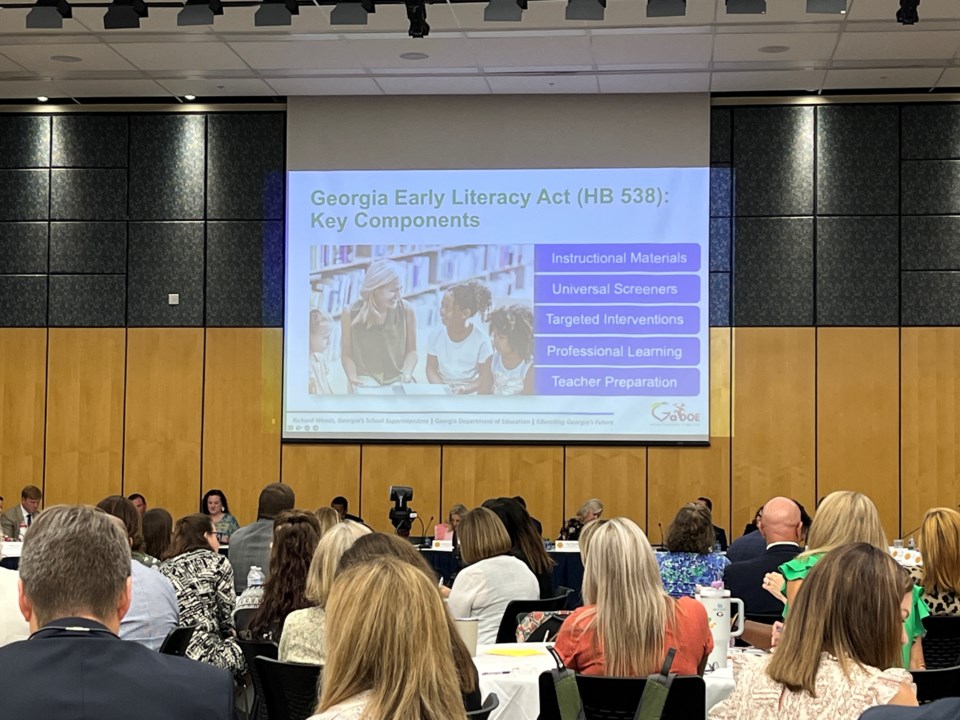
Next, Amy Denty, the Georgia Department of Education Director of Literacy, went over the five key components of the Georgia Early Literacy Act, created earlier this year by House Bill 538. It will be implemented beginning early next year and includes universal screeners for literacy progress monitoring, high quality instructional materials for teachers, targeted interventions at the K-3 level, professional learning for K-3 teachers, and teacher preparation, including aligning the GACE with with evidence-based literacy instruction.
The first round of evaluation data is expected to be submitted in Spring of 2026.
Area superintendents Charles Wilson, Bulloch County, and Paul Brooksher, Bryan County, both spoke about the importance of this implementation in their school systems. Wilson noted that the efforts are going to be transformational for our state, but only if they are a community solution with community ownership.
"To read to learn you have to learn to read," Wilson said. "The sooner we can begin testing what our students know, the sooner we can get help for them."
Brooksher also pointed out the importance of hiring quality educators and creating a culture in which they can thrive.
"Teachers change lives – not programs. We live in a quick-fix society, but programs should only be used as resources," he said. "Too many school systems across this great state are struggling to find quality teachers. We need to be able to brand ourselves as the best place to live, play, and teach."
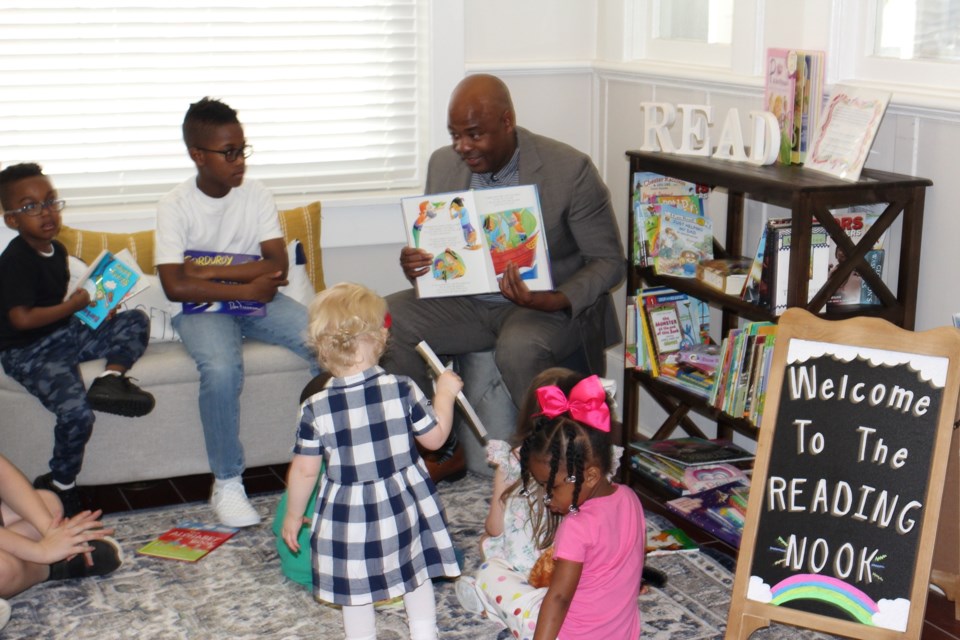
Reading from 'cradle to career'
In an opportunity for public comment, Mr. Roger Moss, Jr., president of the Savannah-Chatham County School Board, summed up the feelings of so many who are on the Council or were otherwise in attendance. For him and many others, the work is deeply personal.
"Literacy is life-changing," he said. "And every child deserves hope."
Through the combined strengths of the Georgia Early Literacy Act and the Georgia Council on Literacy, we now have measurable, evidence-based literacy strategies in our corner. And with these experts and advocates focusing on literacy from prenatal care all the way up to adult education, Georgians will have support in their literacy journey from "cradle to career."
One way you can help is to participate in the Lieutenant Governor's Capitol Book Drive beginning August 17. Books will be distributed around the state for all age levels. Look for additional events near you in September, as well, which is National Literacy Month.
As Dayle Burns mentioned at the event, changes to policy can be painful and difficult, but the changes set to take place here will undoubtedly be worth it. Parents are reminded to read to or with their children every day, seek early intervention for emerging reading or language challenges, and reduce the use of screen time as a substitute learning tool whenever possible.
Going forward, we can all make sure to support our local educators, students, and parents as we take on the challenge of improving our literacy rates together.
For more information on the book drive or other ways to help, contact Miranda Williams at the Governor's Office of Student Achievement at [email protected]. The next meeting of the Georgia Council on Literacy will take place at Kennesaw State University on October 17.

